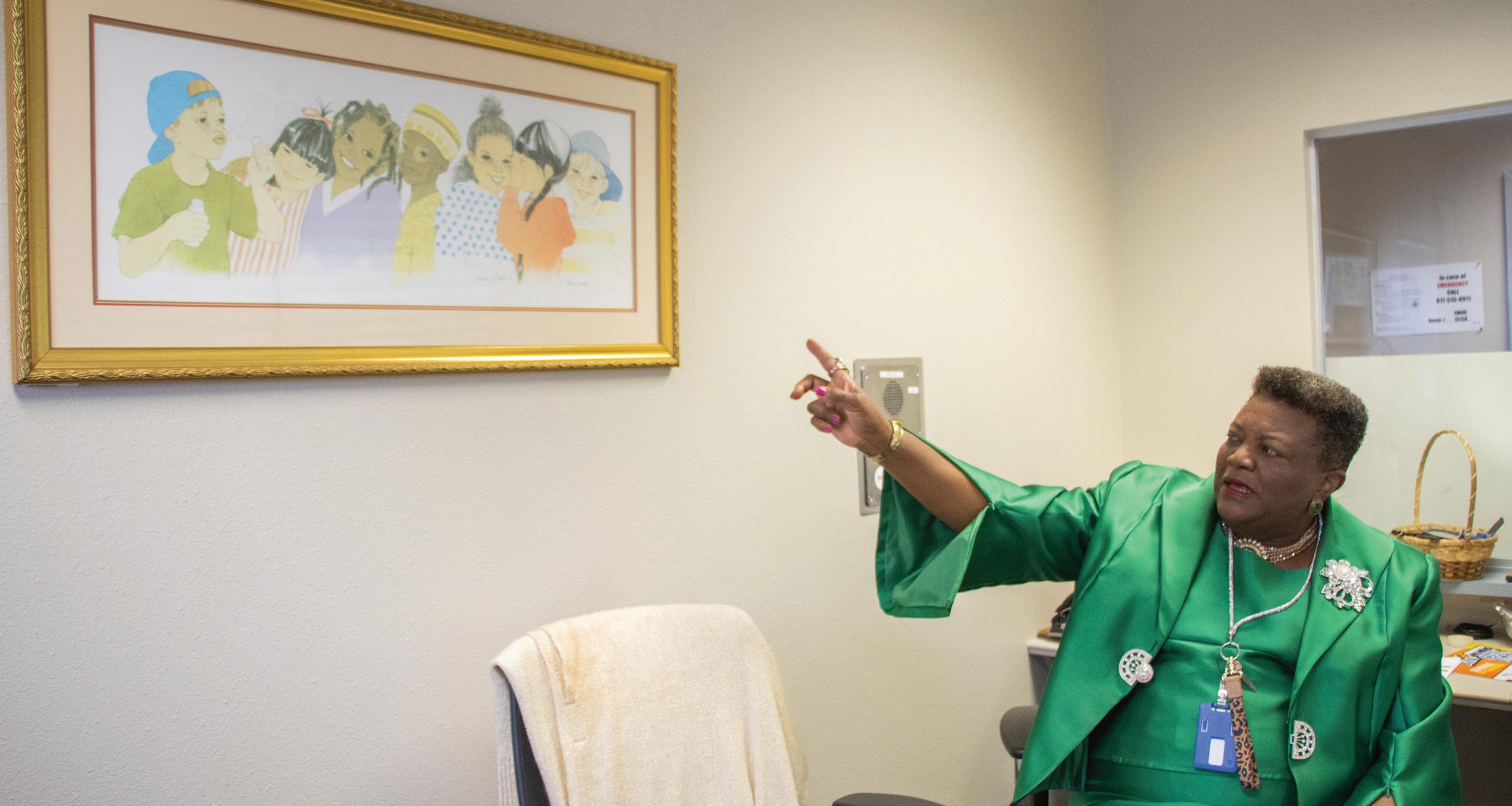Board gives employees 3% salary raise
Trustees approve other measures including lab kits for
FOUSIA ABDULLAHI
editor-in-chief
fousia.abdullahi@my.tccd.edu
The TCC board of trustees, in its Aug. 22 meeting, approved a salary increase for all employees.
Chief financial officer Pamela Anglin said some critical investments are being implemented, one of which is the 3% salary increase.
“Our key priorities this year as we’ve worked on the budget — recruitment, retention and completion support,” Anglin said.
This increase, estimated at $7 million, applies to everyone working as of May 31.
This 3% increase aligns with the compensation plans of some other Texas colleges and the consumer price index, which reports how prices have changed in food, housing, energy, transportation, and
other factors that impact employees, Anglin said.
Employees have been waiting for another salary increase as the cost of living increases.
“Anything helps, but even with a 3% increase, that averages to like 50 cents,” NE administrative assistant Krista Carson said. “It’s kind of chump change across the whole district when we know there’s a lot of money floating around, but that would only bring us up to the 25th percentile of administrative assistants.”
The concern for staff is that while this is welcome, they feel there is room for improvement, especially when employees like Carson have to pick up extra jobs to fill the gap occasionally.
“I think the 3% increase as a baseline is a good starting place. However, last year’s raises were not the same as what faculty received,”
I think the 3% increase as a baseline is a good starting place.
Krista Carson NE administrative assistant
Carson said. “Entry-level administrative assistants start at $16.90, below the statewide average of $17.65 and the national average of $19 an hour.”
Casey Mitchell, NE instructor/counselor for college readiness, welcomes the pay increase.
“A 3% increase is what I think we were all kind of hoping for,”
Connect students
Mitchell said. “Of course, I could always wish for more. Three percent is what we have been getting, I think, for the last few years on average, and hearing that it’s still a steady thing is good enough for me.”
The board meeting also approved many other proposals, such as increasing fees of $160,000 for outside legal counsel due to a legal case regarding terminating a vendor, which has also been approved.
The board also approved continuing memorandums of understanding between schools, both within and outside of the State, such as Texas Woman’s University and the University of Oklahoma.
The board also approved purchasing lab kits for the Connect campus and weekend online classes for biology and chemistry from Barnes and Noble for 2024-25 for $500,000.
District celebrates Toro’s birthday
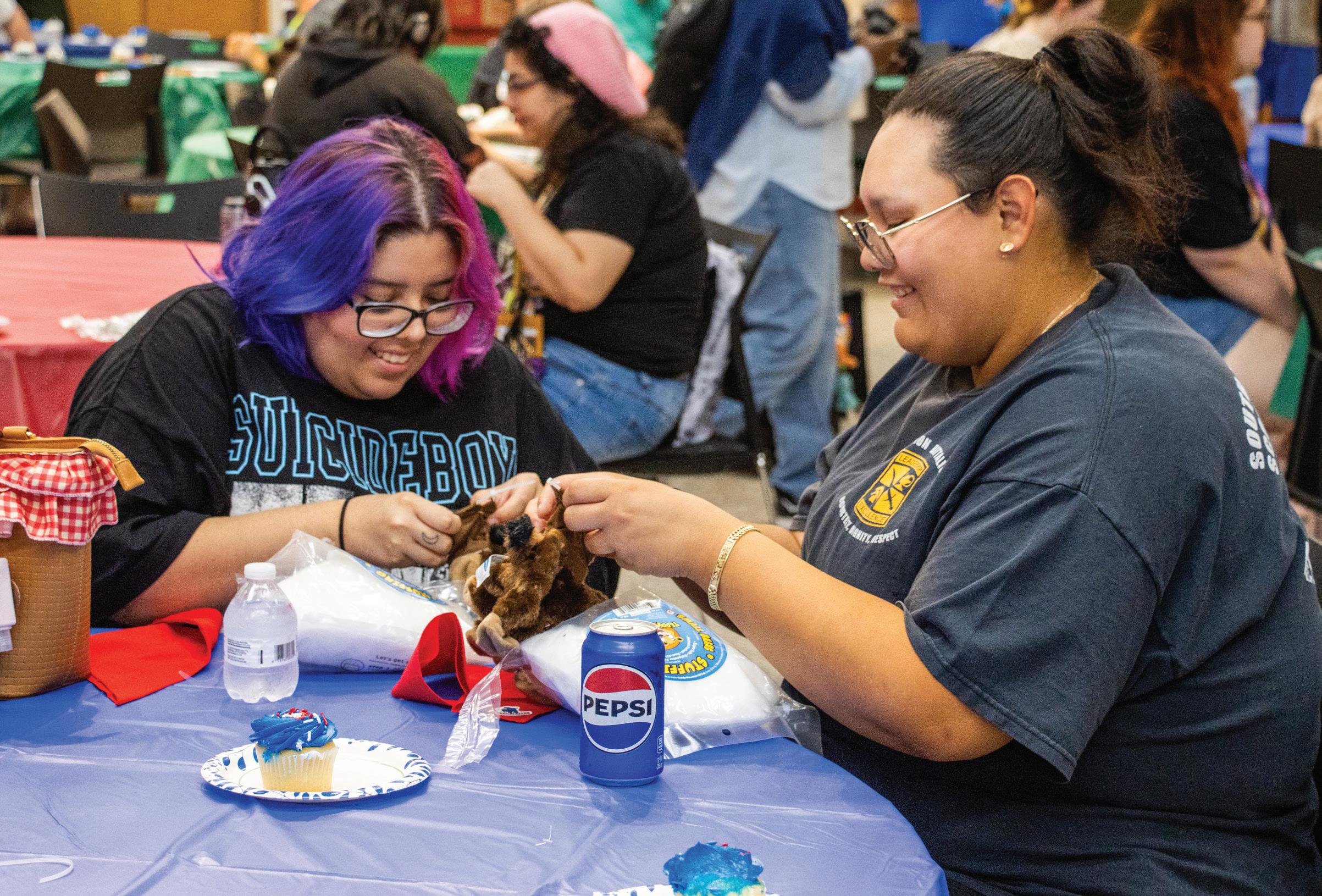
Career advisers aim to boost student success
ADRIAN SCOTT
staff reporter
collegian.editor@tccd.edu
For many TCC students, the path to success can be confusing, scary, and anxiety-inducing. Seeking guidance from advising and counseling services can help remedy the situation. Every student is assigned an advisor at the start of the school year. According to Harold Macias, a Career Adviser at TR campus, each adviser is assigned to approximately 350 students.
The primary way advisors help is by using the guided pathways program, which is a nationwide program designed to help all students explore, choose, plan, and complete programs aligned with their career and education goals efficiently and affordably. TCC started using this program around four years ago.
“Knowing where you’re going is beneficial...now you know why you’re taking the classes you’re taking. Once you have that goal in mind, school becomes a lot easier.” said Macias.
What if you don’t know what you want to do, but you know college is important? Macias was in the exact same boat with his parents, his mother encouraged
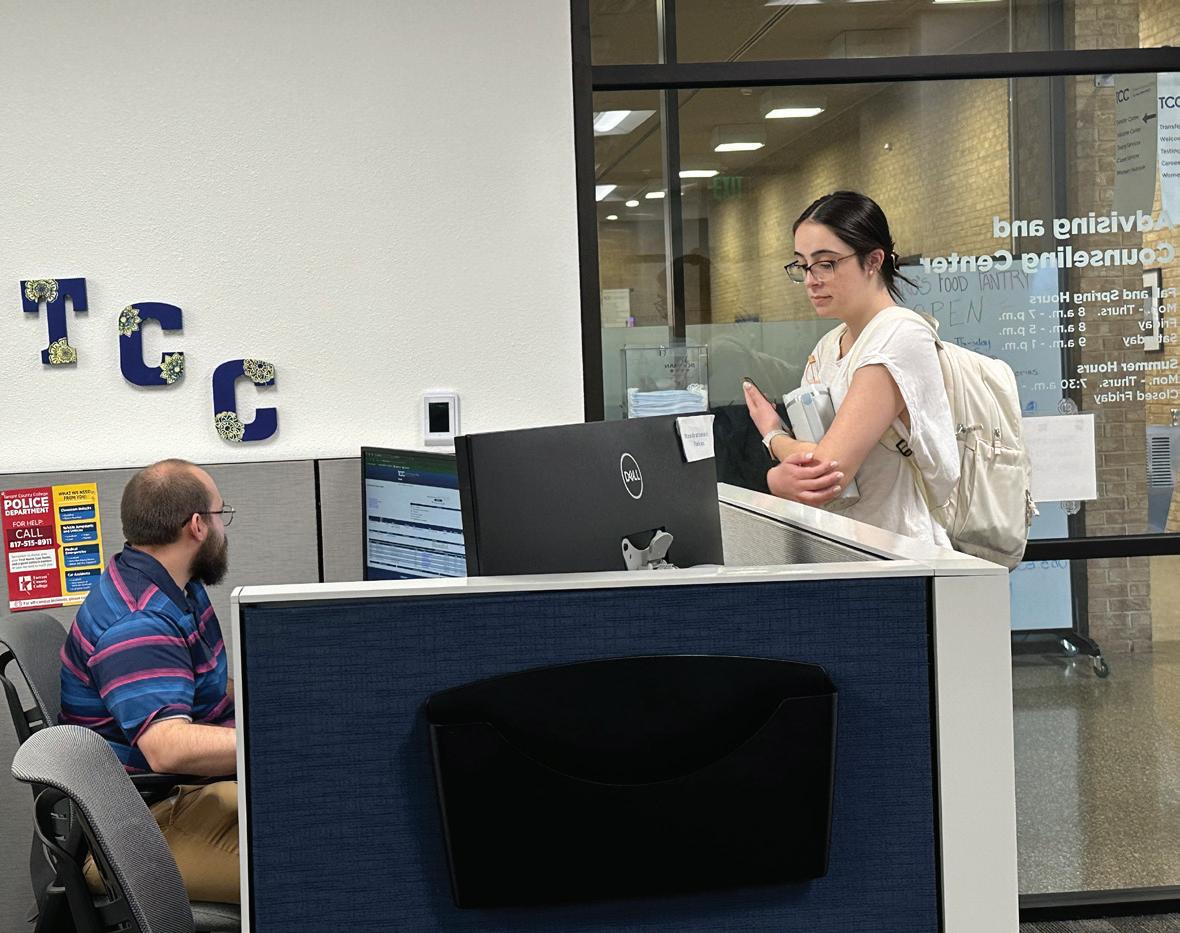
college but he had no guidance or idea as to what he was there for. Tiniya Bonner, a student at TR campus struggled in finding what she wanted for herself in the future, she already knew what her parents wanted of her.
“My mom heavily encouraged me to go to college to make money…I wanted to be a social worker, but the pay just kind of strayed me away from it. ” said Bonner.
Upon telling Macias about similar stories, he pulled up the
Occupational Outlook Handbook from the U.S. Bureau of Labor Statistics. This handbook gives in depth details on any job you might be interested in, regarding how to get the job, what the job entails and pay, as well as any information regarding the job you are interested in.
“Please don’t focus on the pay.. Think about it this way, if I paid you a million dollars to scrape gum and trash off the bottom of chairs, would you be happy? No, right?” Macias said. “Money does
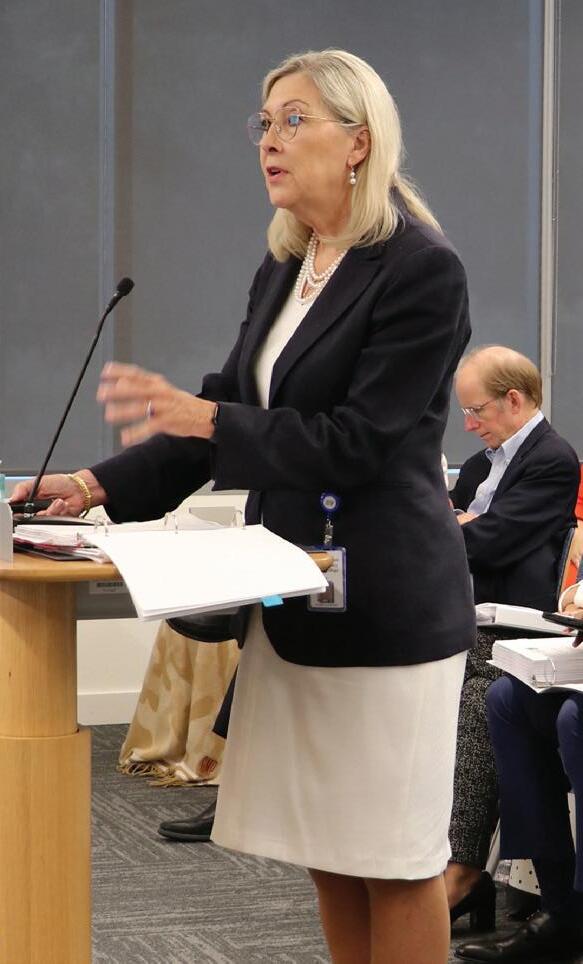
Writing lab helps improve skill sets
REBECCA CHAMPLIN staff reporter collegian.editor@tccd.edu
TCC writing centers help students improve grades by teaching different success skills.
Shawn Stewart, a senior Learning Commons associate and former English professor at TCC, said students can do that by visiting the Writing Center.
“It’s no brag to say that we can easily help you earn 10 to 20 points on a paper, minimum,” said Stewart, “and that’s one to two letter grades if you count out a point per mistake, like me.”
The first step is admitting that you might need help and admitting that you can improve, Learning Commons associate and TCC graduate Decha Cullen said.
“Education is re-wiring a person’s brain so that they can think bigger, challenge themselves more, and keep going,” she said.
Senior Learning Commons associate Kathleen Rice said writing tutors work with people of all different skill sets.
not equate to happiness. Finding something that you enjoy doing is like never working in your life. It’s fulfilling.”
Wade Richards, a studen t at TCC, had no idea about the Occupational Outlook Handbook, but admits he doesn’t communicate with his advisor as much as he feels he should.
“This handbook is insane to me. I had no idea something as useful as this was as easy to get to…Damn, I need to visit my adviser more,” Richards said. “With so much going on in my college life, I kinda forget about them.” Macias would like more students to reach out and schedule appointments, but recognizes their busy schedule, in and outside of school. He encourages students to try and come on their own accord, especially with fall registration going on right now.
“It’s important to sign up for classes early, it gives students the most options for their classes. Some students tend to wait until the last moment to register,” said Macias. “they are typically discouraged by the low amount of options they have available. That’s why we send out emails and reminders. Being proactive will help you thrive.”
“Whatever level they come in at, we can meet them at that level,” she said.
The Writing Center does more than just help with papers, Senior Learning Commons associate Gail Williams said. They’re there to help students write scholarship essays, resumes, cover letters and speeches.
Williams said she was recently able to help a student who was writing her first resume, and it gave the student a sense of accomplishment.
“I feel good when they feel good, and they feel like they accomplished something,” Williams said.
She said a lot of nursing students come in for help with their cover letters and resumes.
“Students will ask, ‘Y’all are here to help us?’ And we say, ‘Yes, this is our job,’” Williams said. While tutors help with a lot of things, there are also a few things that the Writing Center will not do for students.
“Come in with something on paper,” said Williams. “We will not do the work for the students. It’s their work, so they have to own it,” she said.
Williams said the biggest fear she has regarding the use of AI is that the students will use it inappropriately and that it could impact them in a negative way.
See Writing Center page 2
Writing center
(continued from page 1)
“It discourages students from developing their own thoughts, skills and ideas,” she said.
Cullen said her concern is not to get a student in trouble.
“I do want them to know that there is a thing called plagiarism, and what could happen to them if they got caught,” she said.
Students could be dropped from classes or expelled from TCC.
Cullen said students are not getting the base-level skills that they need to build upon by using AI.
“It’s a shortcut that’s going to hurt them in the long run,” she said.
Cullen said that in the past, the Writing Center has held workshops on music theory and looking at how lyrics have changed from the ‘80s, to today. She also said that they have conducted workshops on poetry and film with hopes to get those implemented back into the fall schedule.
Cullen said she would love to have more instructor participation.
“I wish more professors would make coming down to the Writing Center as a part of their plan,” Cullen said.
Rice hopes to create awareness about the Writing Center rescources.
“I wish there was a way to contact every professor and let them know we’re here,” she said.
Many professors may be unaware that the writing center is available to all students.
“I wish there was a way to contact every professor and let them know we’re here,” Rice said.
Ap pointments are scheduled in 30-minute increments, Williams said. “Sometimes students will need extra time, so we will book two 30-minute appointments back-to-back,” she said.
The hours of operation are Monday through Thursday from 7:30 a.m. to 9 p.m., Friday from 7:30 a.m. to 5 p.m. and on Saturday from 10 a.m. to 4 p.m. The Writing Center is closed on Sundays.
The Writing Center also offers live online appointments via Microsoft Teams.
CAMPUS VOICES


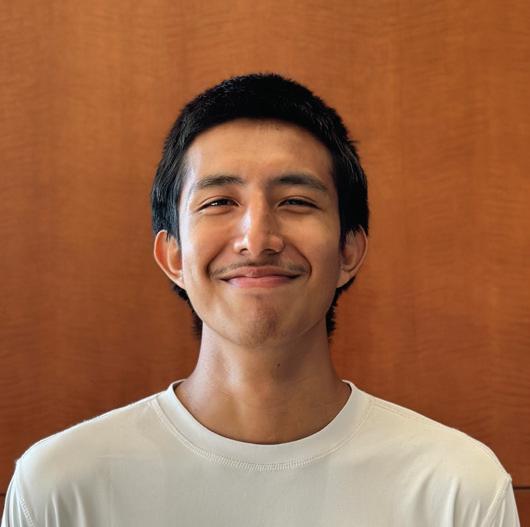
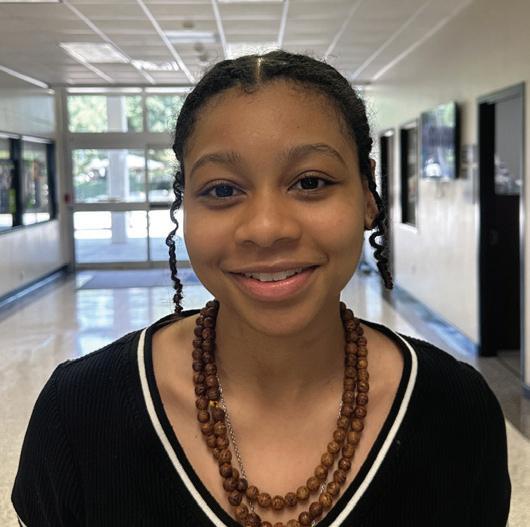


“My

Vice President Kamala Harris is considering a ban on food price gouging. Some are calling this a step in the right direction in lowering the cost of food, which increased by 25% from 2019 to 2023, according to USDA economic research service.
Price gouging is when the price of a product, service or commodity is increased beyond what is considered normal for its value. As of 2023, 37 states along with Guam and Puerto Rico, the U.S. Virgin Islands and the District of Columbia have price gouging regulations and statutes the books.
Some finance experts are skeptical about her plans and think more clarifications are needed to define price gouging and the legalities of the federal government setting the price of goods in a free marketplace.
As of 2023 Americans’ spending on food and drinks increased to $2.7 trillion.
Having more regulations about food nationally will help lower the cost of groceries, a set standard that is a baseline for states to work off for their individual markets. Obviously, the cost of something varies greatly from state to state, but there are some standards we stick to across the board.
Price control is needed, and Harris’ platform is an attempt at making things more affordable. We would also like to see more relief programs that go beyond WIC and SNAP, both of which need to be improved.
However, this is not what the campaign should be prioritizing now as there are more pressing issues to be addressed. By focusing on price gouging, Harris is neglecting the root of society’s problems.
Making sure every working American has a livable wage should be her first focus.
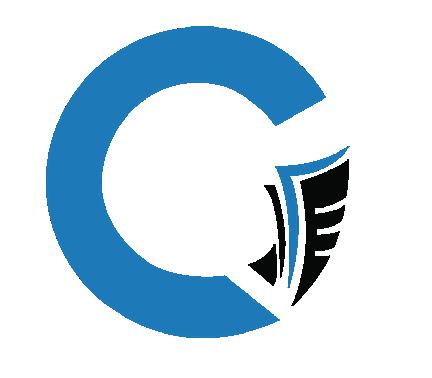

Housing insecurity is also on the minds of many Americans, as the price of rent and mortgages have also gone up since 2020. Setting caps on rent will have an immediate effect on people’s ability to put food on the table, more than
REBECCA CHAMPLIN staff reporter collegian.editor@tccd.edu
It is hard not to despair over the state of our country. But dear millennials, as a woman on the very tail end of Generation X, I beg you to go out to the polls this November.
There is a scary trend of millennials and Gen Z feeling hopeless this election season. Heavy topics such as gun violence, women’s reproductive rights, climate control and the ability to find work after college face young voters. It’s enough to make people throw their hands up and walk away from it all.
The generations before them have left the country a mess. The political climate has boiled over. Shootings every day across the nation. Old, rich men on Capitol Hill control the decisions of the young, and normal rights have been stripped away.
a superficial ban on price gouging will.
If there was more funding for agriculture and increased government aid, the cost to consumers would stay low because farmers would not have to upsell their prod-
ucts. We also need to have groceries in poverty-stricken communities.
Some communities are in food deserts, which means that they have no access to a grocery store within a one-mile radius of their home. The
government should incentivize grocery stores to create programs for low-income areas. If Harris’ platform gave priority to these areas, the impact would be greater than her ban on pricegouging.
E-mail: collegian.editor@tccd.edu
Office: 817-515-6391
We are all more plugged in now than ever and cannot concentrate on one task alone.
Students spend more and more time online for personal use and academic courses that are moving more online.
A National Institutes of Health study found that “when we switch between tasks, we lose the benefits of automaticity and efficiency that come from staying focused on a single task.”
Whether we take online classes or rely on the internet for homework and assignments, we should take regular breaks from using social media or watching TV
The adverse effects of technology, such as overreliance, addiction, antisocial behavior, and living in our own for you page echo chamber, can have a significant impact on us mentally, emotionally, and academically.
The term “touch grass” has recently become popular on social media, reminding people to stop living online and get outside and enjoy nature.
After being a college student for
Reports of police officers shooting African Americans have become a normal thing to see on television. Children now know what an active shooter drill is. Gun violence is a hot- button topic this election year, and we all agree that something needs to be done.
If you are sick of the normalcy of these actions, you must vote.
Women have had to face many obstacles regarding reproductive rights. Many feel that their rights have been yanked away from them under their noses and must seek alternative health care means if they become pregnant. On the other hand, many women are pro-life for numerous reasons.
This is the beauty of democracy. Whatever your beliefs, all that matters is that you make your way to the ballot box.
Cannabis has been decriminalized and available for recreational use in 24 states and for medical use in 38 states. Large percentages of people want to see a change. Many

three semesters, it’s become apparent from classroom discussions that many of us are in the same boat of spending too much time online.
Research is showing that internet addiction is causing sleep problems in students and affecting their grades. This makes sense because if I go to sleep at 3 a.m. and wake up for school at 7 a.m., there is no way I will be able to focus and take in any new information correctly.
In another study, I found in the NIH, “Sleep quality has been linked to internet addiction, and 75% of the variation in Internet addiction scores was explained after controlling for the effects of sex, smoking, place of
people are in Texas jails due to the possession of marijuana. Decriminalization of marijuana laws is at the top of many voters’ concerns. If you want to see reform on cannabis laws , remember to vote Nov. 5. Texas has had its fair share of earthquakes in recent years due to fracking. This, along with many challenges due to climate change, have faced Texans for a while. You once could look at downtown Fort Worth and see it clear as day before pollution took over. Ozone alerts are the norm during summer months. Texans are additionally concerned that ERCOT will fail them like it did during the winter storm of 2021. With the rising concerns of global warming plus the insecurity of Texas’ power grid, you have an overflowing pot of worried Texans. If you are worried about the planet, hit those polls. My advic e is to find the things you want to change the most,
then search for a party or politician that stands for your beliefs. If you think that you want to lead change, look into running for office. Our country is in dire need of fresh, young faces who have faced many tougher challenges than Baby Boomers. Your voices need to be heard, and that happens first by registering to vote. It is a very easy process, and the government will send you a cool card to take with you to your voting center. Check out the address of your voting center before you head to the polls. It will save you time and energy knowing where to directly go on Election Day. Start taking control away from the people who do not understand you and instead support the candidates you feel will have your back. Our country has been stuck in a rut, and you are the key to our country’s future.
That’s a pretty cool spot to be in.
living, time spent online by the student, and GPA level.”
While keeping all the other factors in mind, lack of sleep due to internet addiction shows the most significant share of all those factors.
While learning about and using the internet is vital to social and economic progress, we must set and stick to boundaries to break from social media and screens. One way to do this is first to acknowledge a problem and then, based on that, find out exactly how big of a problem it is by utilizing screen time on your smartphone, which is a great place to start when thinking about unplugging.
Once I realized that my screen time is insanely high on and off campu s, I was able to set timings and regulate which apps I could use and for how long.
Social interactions are also done more online now than before. We have this online global world that allows us to interact with people everywhere at the tip of our fingers. We never even have to leave our homes to make friends, and that can become
problematic if that’s the only place you can build relationships.
Even as an introvert, I feel better when I’m physically around family and friends than when we talk virtually. Don’t get me wrong; keeping up with extended family across the U.S. or overseas is cheaper and timelier on WhatsApp or social media. But there are spaces and events in our community that we need to explore.
Speaking as a parent, I know that my kids need to learn how to use technology for school, but 2 and 3 grades are too early to make it the p rimary way to learn. I’ve noticed that even younger kids’ handwriting and their ability to read cursive have deteriorated and may not even exist.
Campus dean empowers seniors
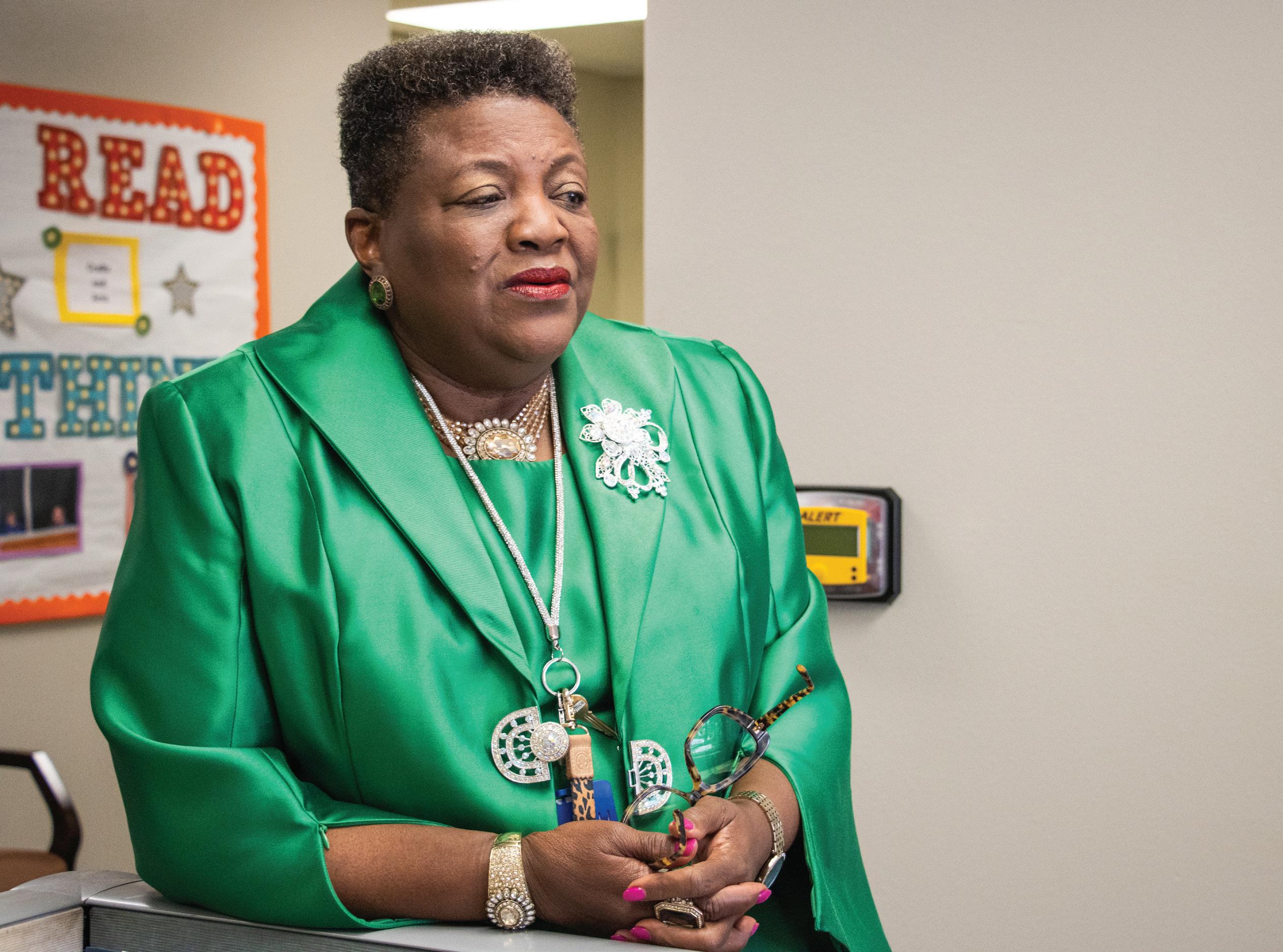
“The beauty of life is enjoying what you do every day.”
— Carrie Tunson
Participants benefit from social, educational activities
LESLIE POSADAS staff reporter collegian.editor@tccd.edu
Carrie Tunson, dean of the lifestyle & community learning division at SE Campus, has made a lasting impact for over four decades.
From an educational administrator in Connecticut to a divisional dean at SE Campus and serving the community inside and outside of the church, Tunson has lived an active life.
Tunson, among six siblings, was the first to attend college, earning her bachelor of science degree at Bishop College. She continued her studies, obtaining a master of science in business education from Central Connecticut State College and a doctor of education from Nova Southeastern University.
“I’m from the 60s, that was the time of racism and prejudice, so those things were up against me coming up as a girl of color, Tunson said. “Those were issues that I had to fight.”
Though she never wanted children, Tunson developed a deep affection for her students at the SE Campus.
“I’ve always had a love for students, I just enjoy the youth being around me,” she said.
Tunson started her journey with TCC over 40 years ago. She came in as a business educator and was then promoted to director of student activities and eventually became the assistant director of the continued education program.
“That’s the beauty of what I do, I wouldn’t want another job,” she said. “People say, “Oh, I want to be a president,” I don’t want to be a president, I’m where I’m supposed to be.”
The senior education program is Tunson’s pride and joy.
With a single program tuition of $20, Tunson encourages all senior citizens 55 years and older to join, she is personally involved with choosing other seniors to teach the classes.
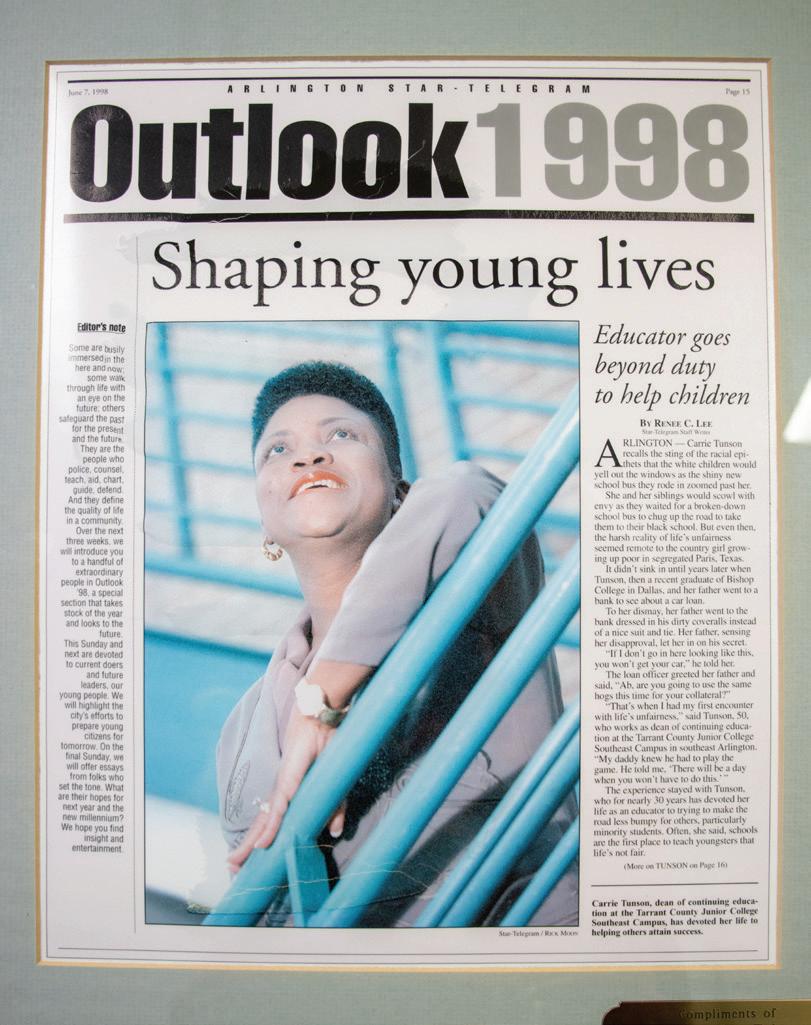
A young Tunson was featured in the Arlington Star-Telegram highlighting the needforequaleducationopportunities.
“Just get out of the house and come and take a yoga class, for your mind and body,” she said.
Elders of the community have much knowledge and experience to contribute, Debra Skyes West, the program coordinator at the NE Campus shared.
“I think one of the most beneficial outcomes of having the seniors on campus is the intergenerational opportunities to communicate and interact in the educational and interpersonal settings of the classroom, campus events, and special initiatives,” West said.
Seniors tend to be lonely, Tunson shared. This program not only gets them involved mentally and physically but also socially.
People tend to look away from the program because they think they have certain requirements,
said Tunson.
“People like my mother would have never come because she wouldn’t have felt comfortable,” she said. “Seniors think they need to have an education, but they don’t, we don’t care if they finished high school.”
Retiring in 2019, Eileen Wagner has become a student in the senior program. She is currently enrolled in two health classes and enjoys the community.
“I look forward to each new semester meeting new classmates and catching up with returning friends, their children and grandchildren,” Wagner said.
Tunson has helped develop the program in multiple ways. From bringing awareness to being personally involved.
“Dr Tunson brings positivity to our senior advisory council meetings,” Wagner said. “She looks to the future in how we can grow, instead of always relying on the past.”
Being in charge of the College for Kids Program, Tunson saw problems and created solutions.
“The beauty of what I do as dean of continuing education is listening to what the community might need and providing those services,” she said.
Originally the College for Kids Program was for grades three through eight but when Tunson caught wind of a mother needing her first-grade kid to stay at the program, she acted.
“I told her, “Let’s try first graders and see if they can do it,” Tunson said. “That was the light of my life, dealing with the babies.”
The College for Kids Program is no longer available at the SE Campus due to its layout, Tunson said.
42 years at TCC has preoccupied Tunson but has not led her away from the outside community. She serves at her local baptist church and is a speaker for many colleges and senior apartments.
“The beauty of life is enjoying what you do every day,” Tunson said. “I probably will never retire, to be honest.”
